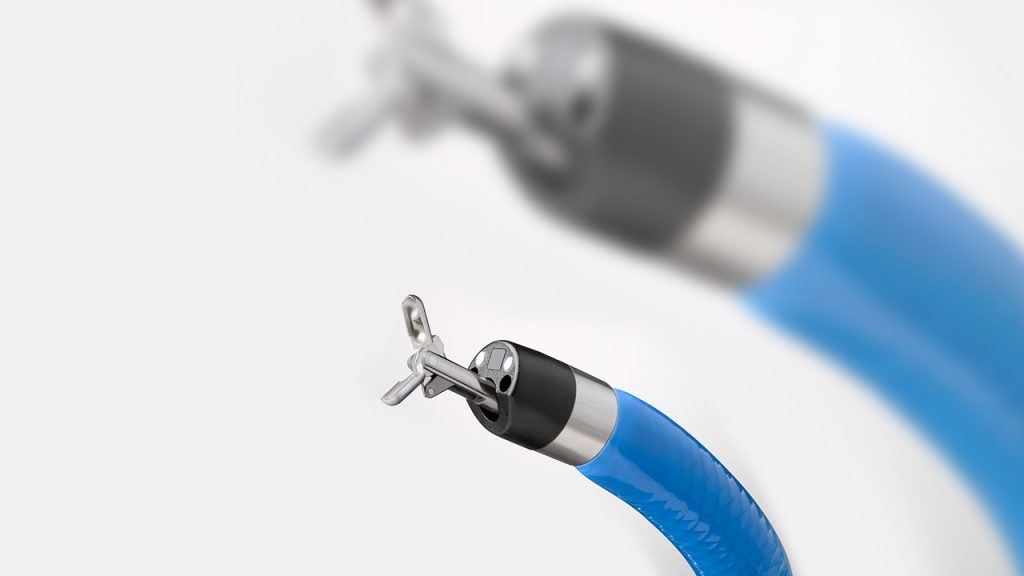
Explaining the ERCP With Spyglass Examination
Rocky Mountain Gastroenterology Associates is Colorado’s trusted provider of advanced gastrointestinal procedures, including ERCP with Spyglass Examination. This highly specialized medical approach can diagnose and treat complex bile duct and pancreatic conditions. Because of its innovative nature, many patients who may qualify for this procedure are unaware of it or have questions. Allow us to answer some of them below, explain what to expect, and outline how it could help you. Please also call our experts with any further concerns or to schedule an appointment at one of our convenient locations.
What Is an ERCP With Spyglass Examination?
ERCP stands for Endoscopic Retrograde Cholangiopancreatography. It’s a diagnostic and treatment procedure for disorders related to the bile duct, pancreatic duct, and gallbladder. Adding the Spyglass Examination to ERCP uses advanced technology to give our gastroenterologists a direct view inside patients’ ducts. The Spyglass system includes a tiny camera and light that provide real-time imaging to examine, diagnose, and even treat specific conditions like obstructions or bile duct stones. This visual aid allows us to see fine details that traditional ERCP may miss, making it particularly helpful in diagnosing complex issues.
Who Should Schedule an ERCP With Spyglass Examination?
If you’ve undergone imaging tests like a CT scan, MRI, or ultrasound that revealed abnormalities in your bile or pancreatic ducts, an ERCP with Spyglass Examination may be the next step. We’ll recommend this procedure if we know of or suspect problems in these areas. Symptoms include:
- Jaundice
- Recurring abdominal pain
- Unexplained weight loss
- Elevated liver enzymes
Furthermore, we can address the following conditions and more using ERCP with Spyglass Examination:
- Bile duct stones that can’t be treated with traditional methods
- Pancreatic cancer
- Bile duct tumors
- Strictures, or narrowing of the ducts
- Primary sclerosing cholangitis
An ERCP With Spyglass Examination Has Numerous Potential Benefits
By offering diagnostic and therapeutic capabilities in a single procedure, ERCP with Spyglass Examination improves the speed and quality of care we can provide. This dual integration offers benefits such as:
- Enhanced Visualization – Enhanced visuals ensure accurate diagnoses and better-informed treatment decisions.
- Minimally Invasive – We can perform stone removal or stent placement without open surgery.
- Targeted Tissue Sampling – Our experts can precisely and accurately biopsy ductal tumors or suspicious areas.
- Short Recovery Time – The healing process is shorter compared to more invasive methods.
The Risks Associated With an ERCP With Spyglass Examination
ERCP with Spyglass Examination is generally considered safe. However, like any medical procedure, it does present risks. Your doctor will discuss these with you beforehand and ensure you’re a good candidate for this approach. Regardless, we’ll take every precaution to minimize risks, which could include:
- Pancreatitis – Inflammation of the pancreas is the most common complication.
- Bleeding or Infection – These complications occur most often if we take samples or place stents.
- Perforation – Although rare, a tear in the duct or surrounding tissue is possible.
- Allergic Reactions – Understanding your allergies is important because we use sedatives and contrast dye during the procedure.
What Does the Procedure Involve?
The ERCP with Spyglass Examination procedure is always performed under sedation. We’ll administer IV sedation or anesthesia to ensure you’re relaxed and pain-free. Our doctors will then insert an endoscope through your mouth and guide it to the bile or pancreatic ducts. We’ll then use the Spyglass system to produce high-definition visuals inside the ducts. Based on what your doctor sees, he or she may remove stones, place stents, or take tissue for biopsy. The procedure typically lasts between 30 minutes and an hour. Finally, you’ll rest and recover.
What to Know After Your Procedure
Most patients can go home the same day of their procedure after a brief recovery period. You may have a mild sore throat or feel groggy from the sedation, but these symptoms are normal. They’ll go away within a day or so. Our team will provide detailed aftercare instructions, including any necessary dietary restrictions. If you experience any complications, such as abdominal pain, fever, or difficulty swallowing, let us know right away so that we can address them quickly.
Contact Our Team Today
Rocky Mountain Gastroenterology Associates proudly provides advanced GI care at several locations throughout Colorado. Our board-certified gastroenterologists are highly trained to use state-of-the-art technology and the latest techniques to ensure our patients’ health and safety. If you think an ERCP with Spyglass Examination is the right next step for your care, contact us today to schedule a consultation.
Go back